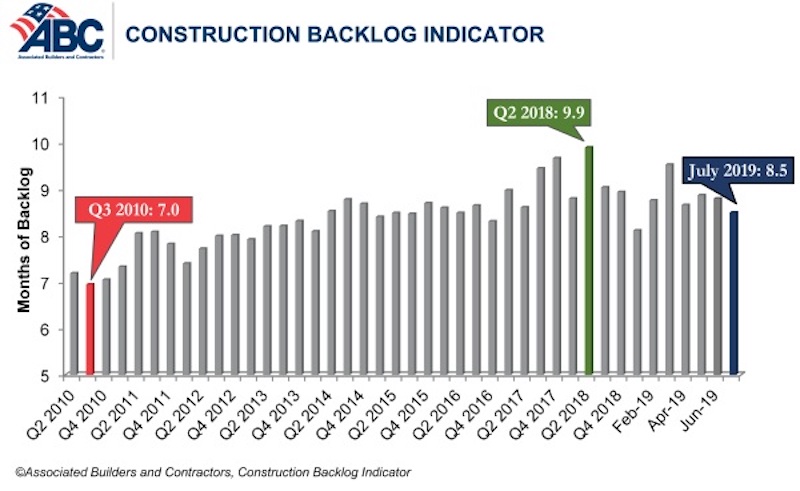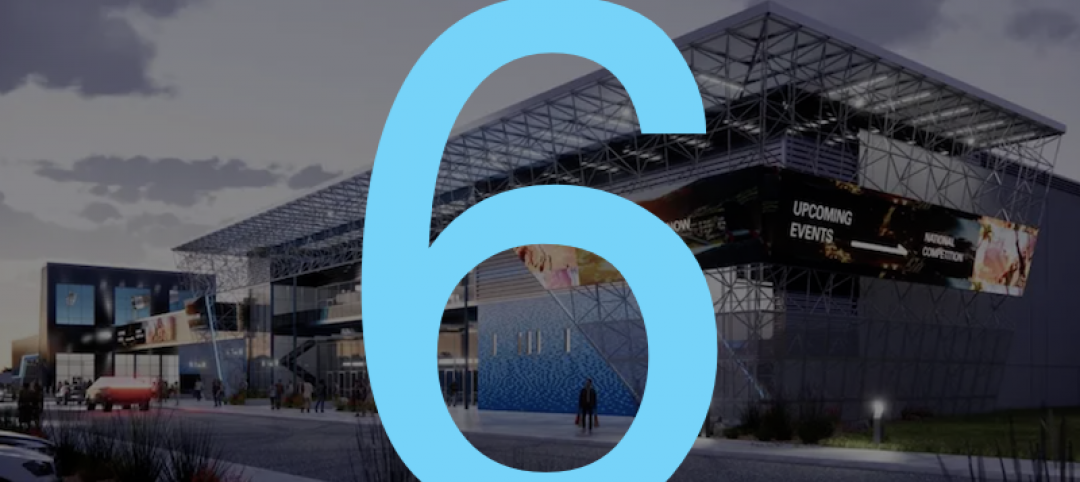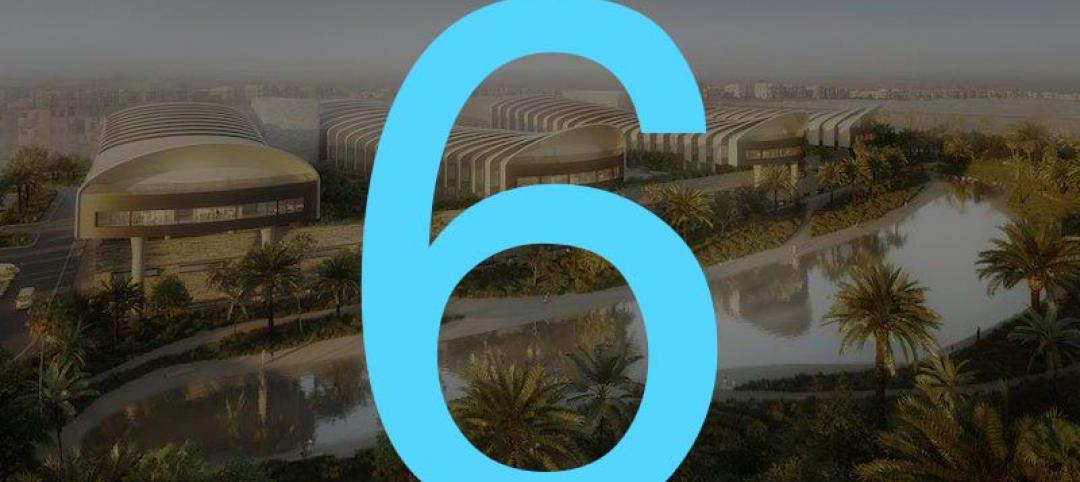Associated Builders and Contractors reported today that its Construction Backlog Indicator fell to 8.5 months in July 2019, down 0.3 months or 2.9% from June 2019, when CBI stood at 8.8 months.
“Construction backlog declined in all four major regions in July,” said ABC Chief Economist Anirban Basu. “While the Northeast and South—the regions with the lengthiest backlog—experienced minor dips, the West and the Middle States exhibited more significant declines. Despite the 9.3% monthly decline in the West region, backlog remains above levels observed in early 2019. For the Middle States, however, backlog is at its lowest level since the last quarter of 2015, largely due to a dip in activity in the commercial/institutional segment, the largest segment represented in ABC’s survey.
“Among the three industry subsegments measured by CBI, only the commercial/institutional category experienced a backlog decrease in July 2019,” said Basu. “Backlog in the heavy industrial category increased by 2.3 months and now stands at its highest level in the history of the CBI series. This is largely attributable to the energy sector, with particular strength apparent in the South. Regions tied to traditional manufacturing activities did not fare as well in July.
“Only companies with revenues lower than $30 million per year experienced shorter backlog in July,” said Basu. “This may be cause for concern since smaller firms tend to be more vulnerable to economic fluctuations. Much of the decline in backlog among this group occurred among those specializing in commercial construction.
“Despite the recent, albeit brief, losing streak, backlog levels remain consistent with healthy construction activity over the near-term,” said Basu. “Contractors collectively expect rising sales to continue and are planning to add to staffing levels, though their exuberance has been somewhat tempered in recent months. If the U.S. economy continues to soften, including in the nation’s manufacturing industry, contractor confidence levels will likely continue to subside along with backlog. Yet, for now, the nation’s nonresidential construction segment remains busy.”


Related Stories
Market Data | Sep 24, 2020
6 must reads for the AEC industry today: September 24, 2020
SOM's new waterfront neighborhood and a portable restroom designed for mobility.
Market Data | Sep 23, 2020
Architectural billings in August still show little sign of improvement
The pace of decline during August remained at about the same level as in July and June.
Market Data | Sep 23, 2020
7 must reads for the AEC industry today: September 23, 2020
The new Theodore Presidential Library and the AIA/HUD's Secretary's Awards honor affordable, accessible housing.
Market Data | Sep 22, 2020
6 must reads for the AEC industry today: September 22, 2020
Construction employment declined in 39 states and no ease of lumber prices in sight.
Market Data | Sep 21, 2020
Washington is the US state with the most value of construction projects underway, says GlobalData
Of the top 10 largest projects in the Washington state, nine were in the execution stage as of August 2020.
Market Data | Sep 21, 2020
Construction employment declined in 39 states between August 2019 and 2020
31 states and DC added jobs between July and August.
Market Data | Sep 21, 2020
6 must reads for the AEC industry today: September 21, 2020
Four projects receive 202 AIA/ALA Library Building Award and Port San Antonio's new Innovation Center.
Market Data | Sep 18, 2020
Follow up survey of U.S. code officials demonstrates importance of continued investment in virtual capabilities
Existing needs highlight why supporting building and fire prevention departments at the federal, state, and local levels is critical.
Market Data | Sep 18, 2020
6 must reads for the AEC industry today: September 18, 2020
Sagrada Familia completion date pushed back and energy code appeals could hamper efficiency progress.
Market Data | Sep 17, 2020
6 must reads for the AEC industry today: September 17, 2020
Foster + Partners-designed hospital begins construction in Cairo and heat pumps are the future for hot water.

















